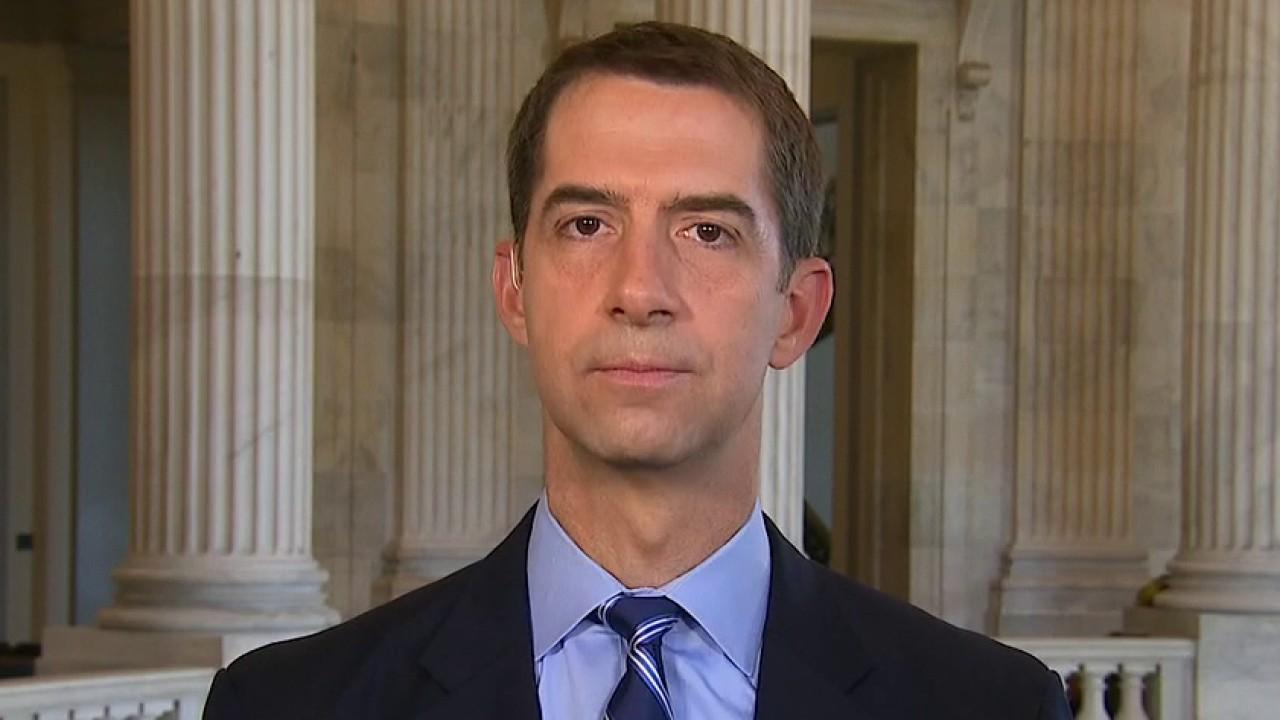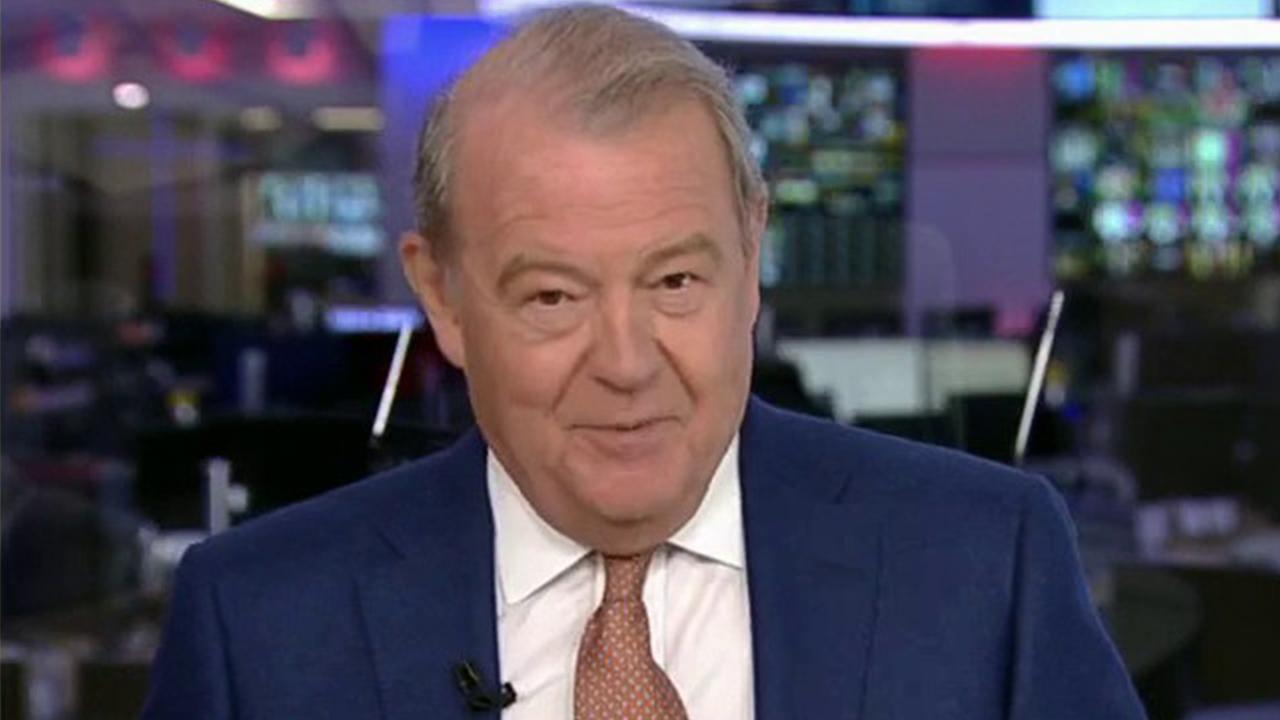Phase 4 coronavirus package should focus on ‘Americans who are still in need,’ Sen. Cotton says
Should not include 'the Democratic Party’s liberal wish list,' he said
Arkansas Republican Sen. Tom Cotton said Wednesday that a priority of the Phase 4 coronavirus relief package should be “the Americans who are still in need.”
During an interview with “Mornings with Maria” with host Maria Bartiromo, Cotton stressed that Congress needs to be “tightly focused on those needs, not all the wants of the special interest in Washington or the Democratic Party’s liberal wish list.”
Talks on Phase 4 coronavirus relief have stalled in the Senate as boosted unemployment benefits expired on Friday.
Last week, Senate Republicans unveiled the “HEALS Act,” their version of a fresh round of coronavirus relief. The $1 trillion Republican bill is the alternative to the Democrat-led House’s “Heroes Act,” the $3 trillion relief legislation passed in May.
“The House proposed several months ago to spend another $3 trillion dollars. A lot of that is not related to this virus or trying to recover from the economic impact of it,” Cotton told Bartiromo. “We need to focus on the Americans who are still in need, people who are working in industries or in businesses that are hardest hit like hospitality or restaurants or airlines.”
“We need to help small businesses that are still struggling to stay above water,” he continued. “We need to help our schools and our colleges reopen.”
Cotton echoed the sentiment of Senate Majority Leader Mitch McConnell, R-Ky., who said on Capitol Hill on Tuesday that he hopes “we get rid of the trillion dollars unrelated to the problem.”
Also speaking on Capitol Hill on Tuesday, House Speaker Nancy Pelosi, D-Calif., said negotiations take “time” and “specificity.”
“We called each other back, with you [bringing] more of your information tomorrow, we’ll bring more of ours so we have the clearest understanding of what is going to be in the bill and what the consequences are,” Pelosi said on Tuesday.
When Bartiromo asked Cotton what he thinks will be impactful and if the $600 weekly unemployment benefits should be included, he replied: “I also support higher [unemployment] insurance payments than normal.”
“I think $600 is a little too high for a lot of regions in our country though because it’s paying people more not to work, than to work,” Cotton continued.
Senate Republicans are discussing cutting the extra weekly unemployment benefits from $600 to $200 until states can adopt a more complicated system, White House economic adviser Larry Kudlow told Fox Business last month.
“I’d like to see an increase payment, maybe not $600, maybe a cap that’s saying you can’t make more than a certain amount of your lost wages,” Cotton said.
He added that liability protections are needed in the next bill, “otherwise I’m very doubtful that some of our schools and colleges are going to be able to go back to school this fall or businesses are going to be reopened safely without worrying about ambulances chasing some plaintiff lawyers waiting outside the premises trying to find a plaintiff.”
“We also need to support those small businesses that are still struggling, especially the small businesses that are in the industries that are hardest hit,” Cotton went on to say. “That’s what a really tightly focused, well-calibrated package would look. I hope that’s where we end up.”
When Bartiromo asked Cotton if he thinks cities and states should get money in the next relief package, he said, “They should not get money to pay off longstanding fiscal mismanagement in states like Illinois and Rhode Island or cities like Chicago.”
“But for cities that have overtime for police officers or that run hospitals and clinics, then I am open to that,” Cotton continued.
He added that “there is a lot of money that’s left unspent from the Cares Act in March though” and said “one place where you might look is to just give states more flexibility on how to spend the money” based off of how the coronavirus pandemic has impacted states and cities over the last four months “as opposed to spending more money on it.”
GET FOX BUSINESS ON THE GO BY CLICKING HERE
“But I am open to helping cities and states and their response to this virus,” Cotton went on to say. “What I’m not open to, what I don’t think the American taxpayer should do, is pay for the longstanding fiscal mismanagement of states like Illinois and cities like Chicago.”
CLICK HERE TO READ MORE ON FOX BUSINESS
FOX Business’ Megan Henney contributed to this report.






















